Denis Villeneuve tangles with Replicants in this bombastic though naggingly shallow sci-fi sequel to Ridley Scott’s 1982 cult classic.
Prior to the UK press screening of Blade Runner 2049, a gentleman came before the excited audience to intone a message allegedly from the pen of the film’s director, Denis Villeneuve. It was short and sweet, requesting that those writing about the film refrain from spoiling it for others by revealing key plot points. It makes sense to offer a collegiate nudge and a wink in order to make sure the overzealous types out there don’t start tweet-threading the twists, or explainerising crucial sequences. His intention, clearly, was to preserve the magic for the masses.
The problem here arose after the film had screened. What Villeneuve had presumed in his lightly passive-aggressive memo is that there would be material in his film that viewers would possess a natural urge to spoil. And yet, to these eyes, there was nothing. This film is little more than a bauble: shiny, hollow and shatters under the slightest pressure. Maybe it’ll be good news for the spoilerphobic among us, but there is little in the film that is actually worth spoiling – at least not without reams of fiddly context and turgid backstory.
One major twist stands front and centre of the main poster artwork, but beyond that… Blade Runner 2049 has no major revelations and nothing profound to say. Very little happens over its bloated runtime. Characters don’t evolve. Drama is compacted to moments rather than parcelled out across a broad sweep. What the film presupposes is that audiences will be able to extend an instinctive compassion to its ensemble of dead-eyed Replicants, and thus the value of their humanity would be implicit. But that’s not the case: this is a film where mortality has become little more than a cosmetic action. Villeneuve does little to amplify the relevance of death’s cause and effect. And what other reason is there to want to watch a movie?
At its centre is Ryan Gosling, an actor who has built a cottage industry out of playing characters who sport an entirely blank expression. Some may even questions whether this even counts as acting. Yet Hollywood has a unquenchable thirst for these stock badasses who suppress their feelings, and so Gosling has found himself quids in. He plays ‘K’, the lone wolf Blade Runner with a yen for giant collars (ironically masking a face which betrays no emotion) whose sole task in life is to “retire” older model Replicants who have scattered themselves across the globe.
His performance could be described as constipated – with a four day back-up. He strains and he quakes, pressing rivulets of fresh blood from the many wounds he has collected on his travels. Despite randomly discovering the site of a “miracle”, and being tasked with burrowing down the rabbit hole by his slick-haired superior (Robin Wright), he does little to convince of his own importance to the story. This choice to bypass sentiment works within the film’s grandiose, hyper-alienating landscape, but does little to engage you in the complex dilemmas with which he supposedly wrangles.
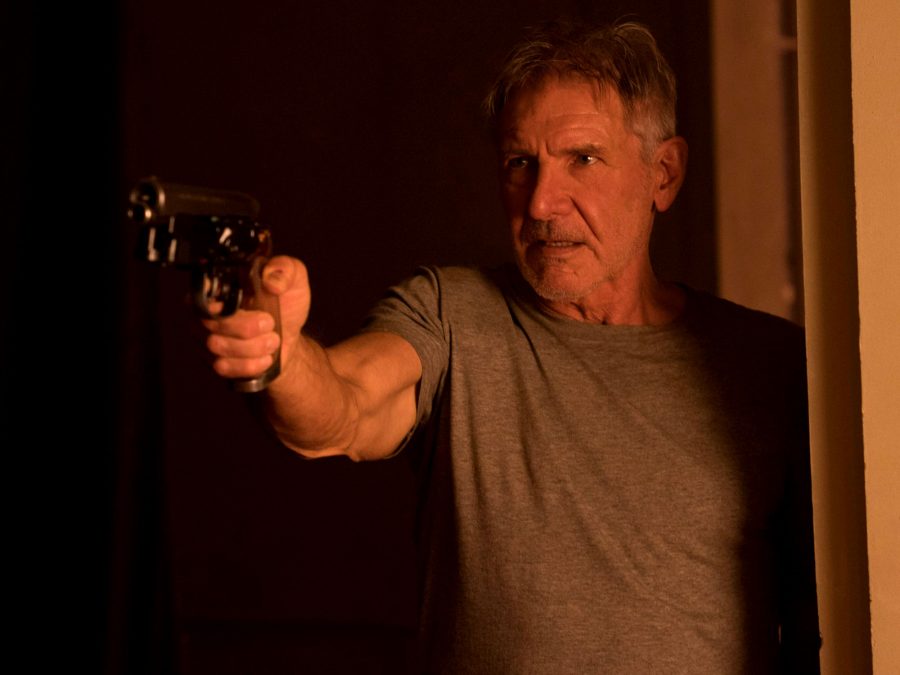
The film is very much cut from the same pulp cyberpunk leatherette as Ridley Scott’s overrated original, as it traces a character working through an extremely banal linear investigation towards an inevitable end point. It’s a process that requires very little in terms of moral deduction, and it’s not a mystery that’s cultivated by keeping select nuggets of information concealed – a tactic which made Villeneuve’s previous, Arrival, work for a good while.
No, the story comprises of K going to a place, learning a thing, and then going to another place. Repeat to fade. There are even a number of moments where K returns to a place and, just by looking really hard, harder than everyone else, discovers something new. How or why he makes these connections is handily swept to the side (maybe for a director’s cut?). Perhaps it’s just terse storytelling with all the faff removed for sake of levity? The reality of it, you watch this hulking movie, and with most scenes the feeling is: do we really need to be seeing this? Why is he here again? Where are we? What’s happening?
There is a reason to watch – on a big screen if possible – and that’s largely down to fine work by regular Villeneuve collaborator Roger Deakins, whose coldly expressive cinematography brings a sense of crumbling grandeur to future Earth. There are numerous shots where the camera pulls back to reveal the brutal sprawl of a Los Angeles which resembles a giant circuit board. And if you really dig atmospheric shots of vapour, fog and smoke, then this is absolutely the film for you. (Blade Runner 2049 is basically Prisoners with flying cars).
The production design plays on the clash between pristine minimalism and post-industrial decay, often encapsulating the two aesthetics within the same frame. The former comes to the fore in the company of Jared Leto’s sinister biotech tycoon, Wallace, whose pseudo-philosophical babblings recall The Architect in the Matrix sequels mixed with the creative director of a ’90s ad agency. He lives in what looks like a couples spa, replete with calming water features.
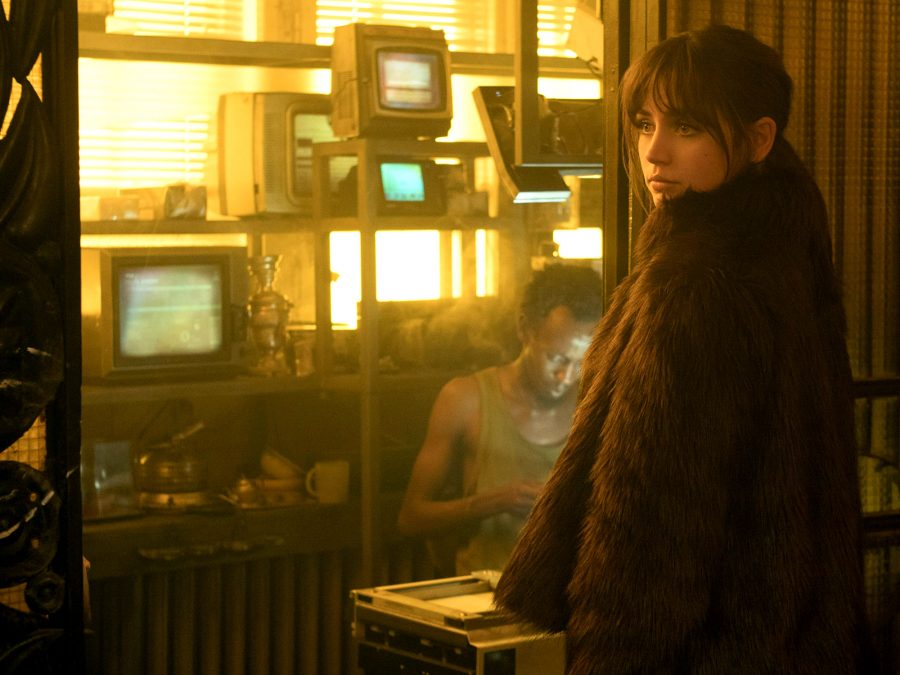
So it’s slow, stately, looks pretty, but sorely lacks for drama. At this point, let’s call it a clean 50/50 split. But what tips it towards the negative is its clutch of dubiously rendered female characters. Women in Blade Runner 2049 are one of three things: evil, prostitutes or naked. There’s even a moment where K takes his flying car to a mysterious desert location that’s dashed with monolithic sculptures. Upon closer inspection, they are nude women with oversized breasts. This isn’t some Freudian metaphor of maternal longing or an image which holds a deep relevance. It is, apropos of nothing, an image of guilt-free titillation for the road.
The central female character is K’s hologramatic sex companion named Joi (Ana de Armas) who frolics around his cell-like apartment in a sparkly cocktail dress while he looks on in self-lacerating disgust. The majority of female characters are needlessly sexualised and serve no purpose to the plot other than to make the male characters feel sad. The film offers an unreconstructed male-centric vision of the future which neglects to explore why calls for gender equality either weren’t answered, or never happened in the first place. It’s very careful to plant different languages and alphabets across the various signs seen on walls and buildings, inferring that the world has developed into a rich cultural melting pot. And yet, women just all like see-through PVC fetishwear and that’s that.
Maybe you’ll watch this film and see some greater aspiration, or a bewitching existential discourse which taps into your own view of humanity, procreation, the dangers of overpopulation, slave-master relations, father-son relations, or something else entirely. It’s clear that Villeneuve has been binging on the films of Andrei Tarkovsky prior to making Blade Runner 2049, as this apes his deliberate, “transcendental” style while neglecting the idea that these gorgeous images have to push towards a common cause to justify their existence. It’s a film full of sound and fury, but it signifies nothing. Do yourself a favour and keep those expectations tempered, and then some. To expect the second coming would be the biggest spoiler of all.
Published 3 Oct 2017
The hype-o-meter is off the charts for this one. Fingers crossed then.
A big disappointment. All the pretty vistas in the world can’t enliven this protracted futuro-slog.
A film that’s certain of its own intellect yet has precious little to impart.
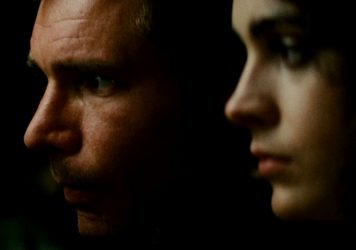
Before Blade Runner 2049 hits cinemas, video essayist Luís Azevedo explores a complex existential question.
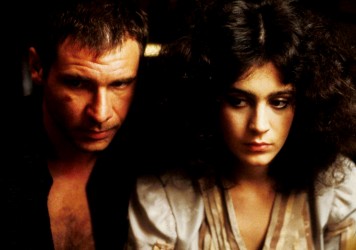
Like a rain-sodden old friend, Sir Ridley’s existential space-opera gets yet another cinematic run-out.
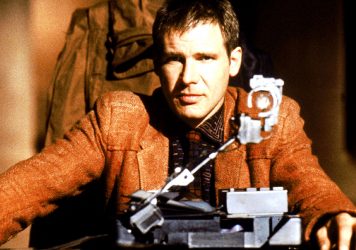
The actor’s balance of robotic detachment and human impulse deepens the mystery.